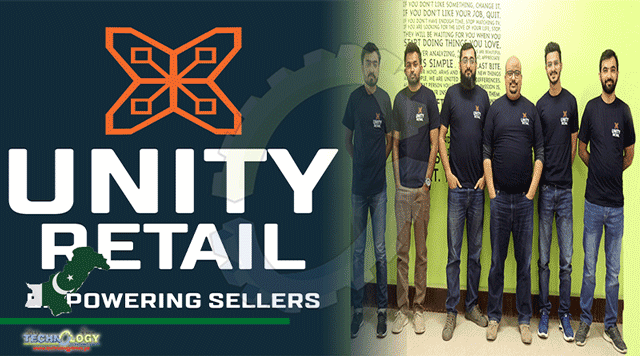Unity Retail Is Aggregating Different Last-Mile Delivery Solutions Into A Single Platform And Offering Their Services To Online Sellers.

Karachi-based ecommerce enablement startup Unity Retail Has Raised A Six-Figure (USD) Seed Round From A Local Investment Firm Boston Equity Partners, it announced in a statement earlier this week to MENAbytes. Founded in 2017 by Mohammed Atif Sami and Syed Shoaib Ahsan, Unity Retail helps online retailers automate their order fulfillment processes through its easy-to-use APIs or plugins for platforms like Shopify, Magento, and WooCommerce.
The startup has over 20 local and international logistics companies as part of its network that provide last-mile delivery and other solutions through it. To put it in simple words, Unity Retail Is Aggregating Different Last-Mile Delivery Solutions Into A Single Platform And Offering Their Services To Online Sellers through its APIs and plugins.
How this helps the merchants is that they have access to this large network of logistics companies in one place without integrating APIs or using plugins of each one of them. Some of the courier companies even don’t have plugins so it is very difficult for retailers to integrate them with their stores.
By using Unity Retail, the merchants can distribute their shipments across multiple last-mile delivery service providers. It also makes it easier for them to reconcile their COD collections as all the insights and data about shipments is available on Unity Retail’s platform. It charges sellers a fee for every delivered order. On its website, Unity Retail claims that the merchants can save up to PKR 50 (about 33 cents) on every order processed through its platform. For the courier companies, the proposition is simple: higher volumes and access to a better tech stack.
Unity Retail also provides different other value-added services to online sellers, including robocalling (order confirmation), packaging, and managed fulfillment services – and just like its courier services, everything is being offered through different partners. With these services and more that are in the pipeline, the Karachi-based startup aims to become a marketplace of different types of services for online sellers.
Since its launch in July 2019 (after pivoting to this model), Unity Retail claims to have processed over 250,000 shipments through its platform. It currently serves tens of sellers of different sizes – which also includes some of the most popular retail brands of the country. Mohammed Atif Sami, the co-founder and CEO of Unity Retail in a statement said, “Empowering merchants to fully leverage the potential of e-commerce is at the core of Unity Retail’s mission. The growing interest in our platform with zero marketing spend is a testament to the market demand for our offering and we are very proud to onboard investors that share our vision of democratizing access to e-commerce.”
Shoaib Ahsan, the co-founder and Chief Product Officer of the startup, said, “We are keen on democratizing ecommerce for Pakistan. Our solution allows any local or international player to have out of the box access to the biggest fulfillment network in Pakistan overnight as well as realize best in the business ecommerce operations practices.”
Arif Baigmohamed, the Founding Partner of Boston Equity Partners, said, “While the demand for the services of United Retail is significant at the enterprise level, the real scale is where the platform makes it easy for SMEs and home-based entrepreneurs to leverage the e-commerce opportunity through a plug and play solution. These dynamics have been validated in other markets with players like ShipRocket in India, Easyparcel in Southeast Asia, and other players in North America.”
Unity Retail will use the funds to further develop its product and fuel its marketing efforts. The startup is also looking to expand its solutions into some Middle Eastern markets. There are a few players in the Middle East that already offer similar solutions including Voo in Egypt and Oto in Saudi.
This news was originally published at Mena Bytes.